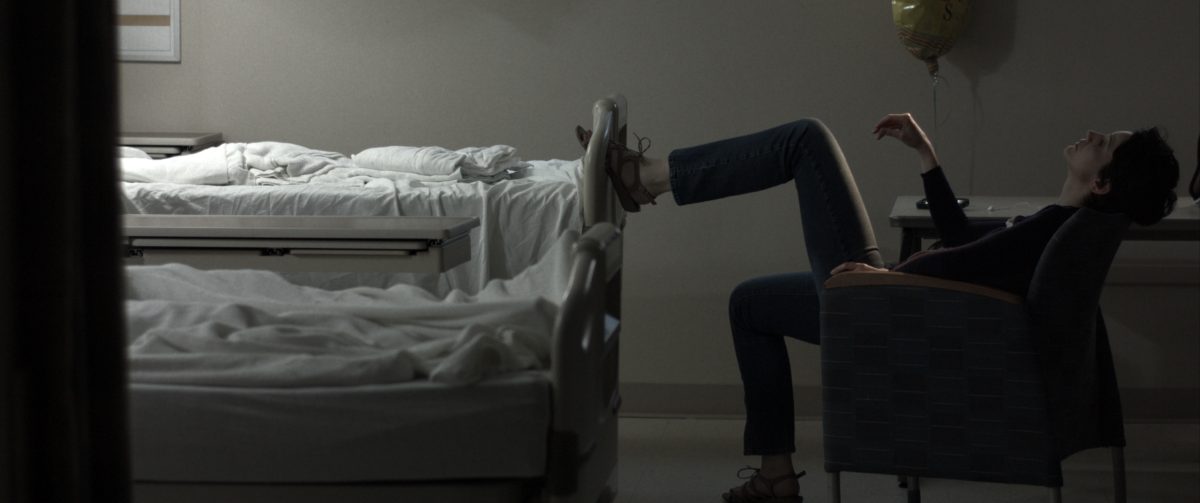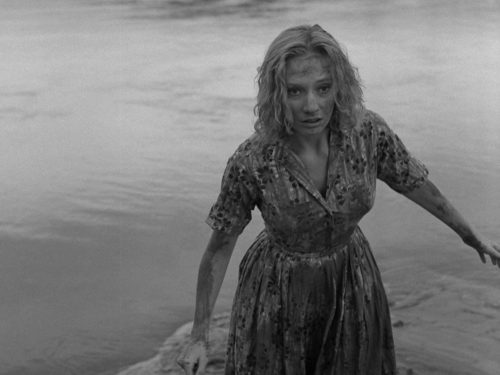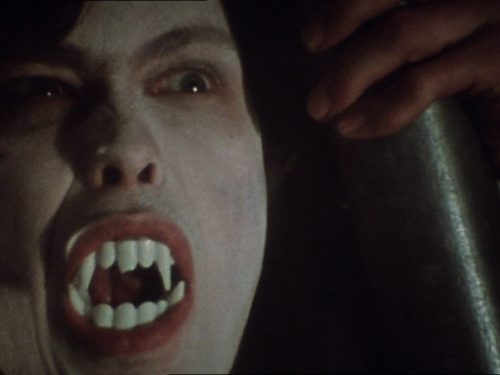Where most American films being praised this year are narratives about stars being born or superheroes conquering evil, Mike Gibisser’s World of Facts is a stark drama of absences. The film follows the paralleled grieving of Maureen (Gretchen Akers) and her father, Peter (Bryan Saner), as their respective partners lie unconscious, hooked to life support systems in hospital beds. When Maureen’s boyfriend, Ted, is moved to her hometown for further care, she travels back with her sister Louise (Rebecca Spence). With her family, she lives in a state of dreadful expectation with nothing but time to kill, waiting for signs of life, or death, from unresponsive loved ones. Gibisser captures some of the most brutal contradictions of mourning, as his characters attempt to balance their strained emotions with the sterility of hospital procedures — the titular “world of facts.” They try to hold themselves up as reassuring presences for their suffering partners and for each other, while the inner wear and tear from pent-up fears starts to show through less direct forms of expression.
Many films working with similarly grave subject matter ask their performers to indulge in turning their insides out, reaching for the scenery-chewing heights of melodramatic soul-bearing. Gibisser and his actors avoid such histrionics. World of Facts takes a more formal approach, which works to ground us while its characters occupy the strange, disoriented headspace of grief. The film creates a more complicated experience where each character’s particular reactions may not be the most telling expression of themselves. Maureen and Peter are both silent types. Peter radiates a sense of stability as he sits at his sick lover’s bedside. He channels his emotions into dance, throwing his body around in ways that express ideas his words never could. Maureen lacks her father’s composure in coping and often appears at a remove from those around her. She describes feeling a mind-body split to her sister, recounting a moment when her body went to call Ted, as if it had forgotten that he was unconscious in the hospital. She mostly retreats into herself, making it easy to label her as cold and detached. But Akers’ performance is too elusive to allow such simple judgements. Maureen’s spontaneous releases during a living room dance party and a fraught, solitary act of sexual longing create a bracingly unorthodox character that refuses to “round” itself into conventionalities.

There are moments in World of Facts reminiscent of Gibisser’s first feature, Finally, Lillian and Dan (2008), a film about two painfully inhibited suitors (Akers plays Lillian). The fragile drama is contained to a point where just muttering a word for Lillian or Dan — let alone attempting a kiss! — becomes a daring, and touching, feat of personal expression. World of Facts builds a similarly delicate tension between characters. Maureen and Peter’s scenes together are often acted through hindered gestures, suggesting a desire to communicate, which are met by averted eyes or hesitation. But in the film’s most impressive scene, Gibisser allows outside forces to come crashing down upon its insular world. During a night out at a bar with Louise, a man named Frank (played by filmmaker Frank V. Ross) approaches Maureen to buy her a drink. He comes on strong, and Maureen half-heartedly goes along with his pick-up game. Before long, she realizes Frank’s unfortunate lack of context to her situation, and she fumbles to get herself out of it. This leads Frank’s flirtation into insults and eventually something much worse. The scene has to be seen to be believed within the larger structure of such a quiet film. Ross’ performance is as strong as any he has given in his own films (See 2012’s Tiger Tail in Blue, which stars Spence and features Gibisser behind the camera) and ranks among the best of the year. As Frank works against Maureen and Louise’s attempts to diffuse the situation, the scene barrels through an abrasive series of misinterpretations and threats, as Akers and Ross manage to be both highly aggressive and painfully vulnerable.
But with all of this discussion of the acting, Gibisser is concerned with his characters’ inner emotional lives — as opposed to their outwardly social or romantic lives — beyond the capacity of their words and gestures. World of Facts is a study of surfaces and their expressivity. On the film’s web page Gibisser quotes a stanza from Stéphane Mallarmé that acted as an inspiration for the film:
True mourning in
the apartment
-not cemetery-
furniture
His camerawork uses the world around his characters to draw out their interior states. Gibisser creates the drastic emotional shifts in the film through repeated shots of Maureen and Ted’s apartment, as their ceiling fan, toilet and window sills are costumed with the dust and grime that accumulates during their time away. Impressions of a missing loved one’s presence are subtly evoked through sequencing. For instance, the night Ted is admitted to the hospital, Maureen is shown struggling to make her bed alone, as the images of her snuggling under the sheets with Ted earlier that day are still clear in our minds.

At other times our perception of characters’ actions is reflected through objects, or muddled by soundtracks that favor room tone or the rush of traffic over dialogue — as when Maureen steps outside to call Ted’s father to inform him about his son. Gibisser’s framing will fragment bodies and crop faces oddly along the edges of the screen to create a sense of something unreachable in his characters. The film draws us to the presence of its characters, as told through the worlds that they inhabit in body, but perhaps not in mind or spirit. World of Facts is the quiet type of film that tends to get lost among the trendy, sexy, fashionably topical, romantic, spectacular and action-centric movies that top all the mainstream media outlets’ year-end lists — which are often more illustrative of how susceptible professional reviewers are to studio marketing campaigns than to how receptive they are to the actual films. It denies us the cathartic release found in most deathbed dramas and presents us with characters who rarely drop the shields over their emotions. This is a film that doesn’t shy away from life’s harshness, yet it never dwells in the pain either.
Mike Gibisser’s World of Facts is now available to stream on NoBudge.com.
Follow Brett and Split Tooth Media on Twitter
(Split Tooth may earn a commission from purchases made through affiliate links on our site.)




